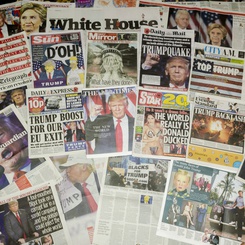Cedomir Nestorovic, Professor of Management at ESSEC Business School and author of the recently published book Islamic Marketing: Understanding the Socio-Economic, Cultural, and Politico-Legal Environment, explains the context and challenges of adapting products and services for the Muslim world.
Even as recently as 10 years ago, Western firms tended to adopt an imperialistic attitude towards selling their products or services to the world. Today, however, marketers must be prepared to scrutinize, analyse and consider various elements of culture when they want to establish a physical presence or launch a product in foreign markets.
This is perhaps especially true for firms looking to do business in the Muslim World, where religion can be seen as an immutable element of the economic, cultural, and political environment that force companies to adapt their offer and marketing practices. Today, Muslims make up over 23% of the global population – more than 1.7 billion people. So how should a firm adjust its tactics to tap into this huge market potential?
3 Keys to selling to the Muslim world
- The purchasing power of potential consumers
From a cultural but also from an economic perspective, Muslim-majority countries are an extremely diverse group of states. Choosing between global and local marketing strategies depends very much on the countries where the company is present. Qatar, for example, is the first country in the world in terms of GDP per capita. Countries such as Indonesia and Turkey also have high overall GDP. On the other hand, there are many Muslim-majority countries with extremely low GDPs, such as Somalia or the Comoros. Although it may be more difficult for marketers to address poorer regions, opportunities still exist because of the bottom of the pyramid approach and workers remittances. Overall, growing GDPs, coupled with an expanding demography, mean that the Muslim World presents a promising area for growth.
- Consumer habits
Religion is always considered to be THE static element of culture, something that marketers cannot and should not try to change. Other elements of Islamic culture are more dynamic, where mass-media and internet can have an enormous impact on consumer behavior, and aligned with Western trends. The arts, beauty standards, and fashion are the most dynamic areas, and cultural evolutions can give certain businesses a boost.
However, in spite of the unifying factors of religion, Muslim countries still display a huge variety of social and cultural patterns. Geert Hofstede’s dimensions of culture, which identify differences such as respect of hierarchy or degree of individualism, can be very helpful in identifying these differences. For example, since some Islamic societies score lower on Hofstede’s Power Distance Index – identifying an attachment to egalitarianism – showing wealth does not pose a problem. Advertisements proposing luxury items and a luxury way of life are therefore definitely acceptable.
- Local legal barriers
Will your firm be able to enter a given country, or will it face political and legal barriers? A major example of a political barrier is the boycott of one company or one country – as is the case with the Arab League boycott of Israel. This forces companies to choose if they serve the Israeli market or Arab League member markets. Moreover, other boycotts exist that are unofficial, but nonetheless impactful. The legal environment also addresses the use or not of Shariah Law, as well as standardization and certification issues. For two industries at least (Islamic Finance and Halal Food) the harmonization of standards and mutual acceptance of certification bodies is a prerequisite for market expansion. The marketer is therefore stuck between the economic rationale of serving a growing and more affluent population, and the political overtones it can initiate.
Prof. Cedomir Nestorovic on ESSEC TV:
View Cedomir Nestorovic’s recently published book: Islamic Marketing: Understanding the Socio-Economic, Cultural, and Politico-Legal Environment, Springer 2016
Extract: This newly published book analyzes the current Islamic marketing environment in a Muslim world which is extremely diverse in terms of economic development, customs and traditions and political and legal systems. This diversity means that it is vital for companies and marketers to analyze the environment before attempting to address these markets. Throughout the book, Prof. Cedomir Nestorovic emphasizes three keys to elaborate distribution and promotion strategies: the market must exist in terms of purchasing power or demographics; potential consumers have to believe that products and services answer their needs and demands; and finally, identifying if there are political and legal barriers to companies wanting to enter these markets.
Islamic Marketing offers detailed insights into the economic, socio-cultural, and politico-legal environment in the Muslim world, essential for marketers to understand and form the foundations of effective marketing strategies.









